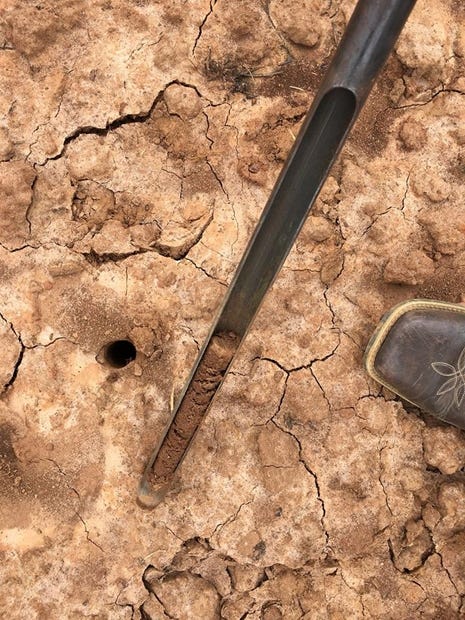![When using a soil probe, take 10-20 subsamples from the soil for testing. [CONTRIBUTED PHOTO]](http://127.0.0.1/wordpress/wp-content/uploads/2022/01/ghows-DA-9001fb11-0fa7-7738-e053-0100007faf1b-a88ed045.jpeg)
Soil scientists like to use the phrase “it depends” an awful lot for educated folks.
Before getting a master’s degree in soil science, I used to get very frustrated with that answer. Now I find myself saying just that to clients. Case in point: a client who hadn’t had a soil test done lately wanted to know if they could fertilize a pasture and if so, with what. My answer: … It depends!
Without a soil sample being performed, I don’t know several very important pieces of information I need in order to answer that question. First, I need to know the soil pH. If the pH isn’t right, fertilization is a waste of time and money.
Different plants have different needs. Some plants need more phosphorus than others. Some need more iron or zinc or copper. The availability of these elements not only depends on whether they are present in the soil but also on the soil pH.
Chemistry that you didn’t think you would need in high school comes into play here. Luckily you have me, several other agents and Master Gardener volunteers to lean on for help here.
So back to the example above, I asked the client to do a soil sample before I could answer that question. This is commonly what we will ask when clients ask for fertilization recommendations. This isn’t because we want the client to spend money on the test (It only costs $7). It is because we can’t make a good recommendation without it. I would hate for our recommendation to waste a client’s time and money.
So the moral of the story here is: Test, don’t guess! It takes a week or two to get the full soil sample results back and costs only $7 per sample. That’s a pretty cheap investment.
Whether you are planning for a fall garden, a wildlife food plot or winter forages, don’t waste time and money guessing. Run the soil test so you know exactly what you need to do.
Contact our office at 850-689-5850 for more information on soil testing.
Jennifer Bearden is an agent at the University of Florida's Institute of Food and Agricultural Sciences Extension office in Crestview.

This article originally appeared on Crestview News Bulletin: It all depends on soil pH
